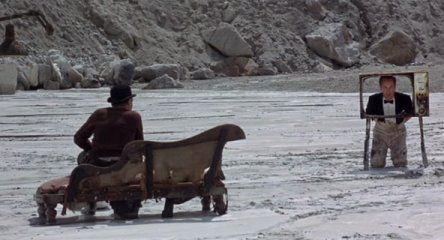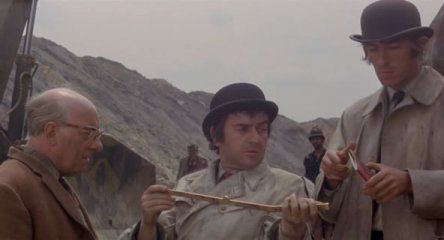Do you think we've come to the end of it all?


Of all the films Richard Lester directed in his career, I'd say 1967's How I Won the War and 1969's The Bed Sitting Room were by far the most British. Tellingly, both are about the nation's relationship to war, but whereas the former seeks to characterize how its citizens hold up in the thick of battle, the latter is primarily concerned with how the survivors would get on after it has been lost. Based on the play of the same name by Spike Milligan and John Antrobus, The Bed Sitting Room is an exceedingly dry post-apocalyptic comedy set three years after the Third World War III, which didn't last nearly as long as the first two. Those left behind are facing something of a crisis, though, since food is scarce and some of them are beginning to mutate.
Over the course of the film, we meet the majority of the war's 20 known survivors, including a Lord who's worried he's turning into the titular living space (Ralph Richardson), a family of three (father Arthur Lowe, mother Mona Washbourne, their heavily pregnant daughter Rita Tushingham) who make their home on the Circle Line, the daughter's amorous beau (Richard Warwick), a lecherous doctor who tries to come between them (Michael Hordern), and the policemen charged with keeping the populace on the move (Peter Cook and Dudley Moore). Apart from Cook and Moore's double act, most other services are provided by individuals like cracked delivery man Spike Milligan, overzealous nurse Marty Feldman, hairdresser Roy Kinnear, and Frank Thornton as The BBC. Then there's Milligan's Goon Show co-star Harry Secombe, who's been locked away in his air-raid shelter so long he was no idea that instead of "God Save the Queen," they now sing "God Save Mrs. Ethel Shroake" since she's the closest thing they have to a royal. Good to know that even after the collapse of civilization, some traditions still remain.